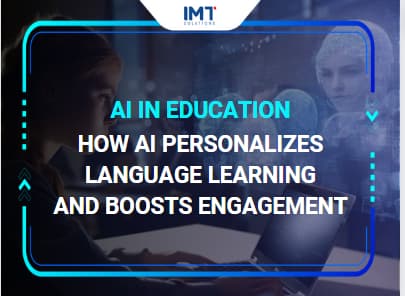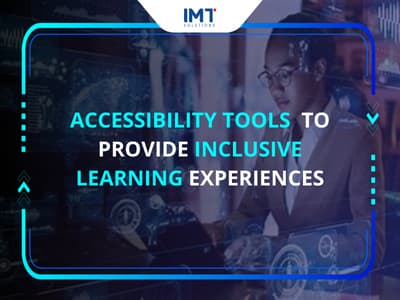The Ultimate Guide to Successful AI Integration in Healthcare Business
In recent years, AI has transformed healthcare in many areas, including diagnostics, support decision-making and automated administration tasks. According to the Centre for Economic Policy Research, AI adoption could save healthcare organizations between USD 200 and USD 360 billion annually. As cost pressures rise, AI integration will play a crucial role in helping providers optimize resources and improve efficiency. In this blog, we’ll guide you through the successful integration of this transformative technology to boost efficiency in your healthcare organization.
Current State of the AI Integration in the Healthcare Sector
According to reports, the Healthcare AI industry is estimated to reach USD 164.16 billion by 2030. The huge expansion of this market is attributable to the increasing demand for improved healthcare services to serve the aging population. The shortage of medical personnel also adds to the adoption of automated solutions. Healthcare providers are integrating AI across the healthcare spectrum, optimizing operations and enhanced services delivery:
- Forecasting and managing patient flow: The UK’s National Health Service (NHS) employs AI to estimate patient risk of becoming regular visitors. This allows them to be more proactive in giving sufficient treatment in the early stages. On the enterprise level, AI enables statistical analysis to help hospitals allocate resources in a timely manner. This improves the efficiency of operations and patient treatment processes.
- Monitoring remote patients: As the home healthcare trend grows, being able to monitor patients from afar becomes increasingly important. This is where AI integration extends outside the hospital boundaries and transforms into a more personalized experience. Leveraging AI enables healthcare practitioners to give more customized, effective, and proactive care, ensuring that patients receive adequate therapy at any time.
- Optimizing administrative tasks and clinician workflows: McKinsey & Company reported that administrative costs account for more than a quarter of total US national health expenditures. This cost can be decreased by using automated staffing and scheduling solutions powered by AI solutions. In a recent study, 83% of physicians believe AI integration can ease healthcare challenges by reducing administrative burdens and boosting efficiency.
- Diagnostic image: AI offers huge potential for improving the interpretation and use of medical imaging including X-rays, MRIs, and CT scans. The integration of this developing technology reduces errors and speeds up diagnostic operations. Ultimately, this results in lower expenses and faster diagnoses.

AI applications in healthcare have enormous potential in the future. As a result, it is critical for healthcare providers to begin implementing AI into their operations. Early adoption can help them keep up with industry changes and provide better patient care. However, AI integration is not an easy task; see the next section for a complete roadmap to successful implementation.

The Path to Effective AI Integration for Healthcare Businesses
Defining Clear Objectives for AI Integration
For a successful AI integration, healthcare businesses must begin by defining clear objectives for adoption. This is where they assess where AI can deliver the most value for their operations.
This could include pinpointing operational efficiencies and administrative burdens. By aligning their goals with high-impact areas, healthcare businesses can make informed decisions in the early stages of implementation. The more well-planned this stage is, the smoother the transition to adopting new technology. Moreover, this allows businesses to better track their development in later stages.
Choosing the Right Technology Partner
Once your business has listed out the objectives, the next step is to carefully evaluate potential technology vendors. It is necessary to find a vendor capable of turning your vision into reality with expertise. Evaluate their experience in implementing Healthcare AI solutions, their service offerings, and their track record with previous projects. A reliable vendor will ensure a smooth integration process without disrupting your operation. Additionally, establishing clear communication and expectations with the vendor can further streamline implementation and drive better outcomes.

Trial and Evaluate AI Solutions
Before deploying new solutions, it is necessary to conduct trials and tests. This is to guarantee that the AI integration blends seamlessly into the existing activities. It is also critical to examine whether the proposed solutions meet the requirements of the organization.The trial period provides insight into the effectiveness of the new solutions in calculating ROI. Gaps that need to be addressed before full implementation can be identified during this phase.
Training skills for healthcare professionals
In this AI era, health professionals will not be replaced by technology; they will work alongside it. Therefore, healthcare organizations will have to create a program to help experienced professionals to learn and adopt AI. As AI is integrated, organizations should ensure that employees should understand new solutions and their benefits. It is important to collect the response to determine how to integrate and scale these techniques in the patient’s care. Furthermore, leaders should engage with healthcare workers to build a positive, data-driven culture. This approach encourages AI use while safeguarding patient information. It will also help optimize AI’s impact on healthcare delivery.

Choosing the Right Technology Partner
After deploying AI solutions, the work is far from over. AI integration is a continuous process that demands regular monitoring and evaluation. To ensure continuous performance, healthcare organizations must continuously track and assess the effectiveness of AI solutions. This process is important to identify areas for improvement, as well as to develop healthcare needs. Continuous assessment also helps customizing AI functions and ensures that they align with organizational goals. In addition, active adjustments enable healthcare providers to stay ahead of the competition and maintain high quality patient care.
In conclusion, AI applications in healthcare are increasingly being adopted across global organizations. The potential of AI integration stretches across various areas, including supply chain management, healthcare mobile apps, and patient monitoring systems. However, implementing AI solutions into healthcare operations still faces many challenges, such as data security and system integration issues. As a result, selecting the correct IT partner is critical to guiding your firm through this challenging path. We specialize in tailored AI integration for healthcare organizations. Contact us to unlock AI’s full potential in your operations.





